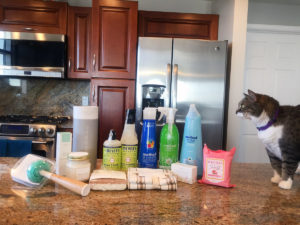
Tom asks:
“We’re thinking about buying a duplex on a beach in a popular vacation destination in Florida. If the property stays 85 percent occupied as a short-term (VRBO) rental at current rates, the income from one unit of the duplex could cover the costs of a 30-year mortgage.
“Our goal is to move to this location in five years. We were going to wait until we moved to buy, but this duplex came on the market, and we think it might be a good deal. We could buy the duplex, rent out both sides for five years, and move into one unit when we’re ready.
“But if a recession hits, Florida real estate might tank. The rental rates or occupancy could drop. And we’d be stuck paying the mortgage out-of-pocket, which means we might not be able to retire. Should we take this risk?”
Tom, this is an excellent question. You’re taking the right approach to buying a beach house — you’re making a sober look at a spreadsheet, analyzing multiple scenarios and variables.
The value of a property is only relevant at three points:
- when you buy
- when you sell
- when you refinance
Otherwise it’s noise.
Don’t worry about what might happen if the economy tanks and the value of the property drops. Value is theoretical.
Do, however, worry about what might happen if tourism declines and the property’s income drops, because this affects your day-to-day life.
If the economy tanks, tourism drops, and your income drops — you’ll need a Plan B.
Here’s my question:
Could you rent out both sides of the duplex on traditional 12-month leases and still do okay on the deal? It doesn’t have to be amazing, but it needs to be enough to get you through the rough patch.
Functionally, what this question asks is: do you have multiple exit strategies?
Your primary strategy is to use this as a short-term rental, and based on the numbers you’ve given, that sounds like a viable strategy.
But you need an escape hatch, a Plan B.
If Florida home values drop, selling is not an attractive exit strategy. You’ll need a different Plan B. That’s why there’s wisdom in buying the property only if it works as a 12-month rental; the supplemental income from VRBO is a bonus.
Again, I’ll repeat: you don’t need to love it as a 12-month rental, it just needs to work.
Rachel asks:
“Would you consider purchasing a beach house?”
Sure! If the numbers make sense. But only if the numbers make sense.
And that leads to the bigger question– WHY do you specifically want a beachfront property? Is it because, after running multiple spreadsheets, you’ve concluded this this is a wise investment with stable and healthy returns relative to its risk profile and liquidity? Or do you want this because you think it’s cute?
You’re buying an investment, not a vacation home. Make investment decisions based on returns, not personal enjoyment.
Rachel also asks: “Do you consider buying a rental out-of-state?”
Heck yeah! All my rentals are out of state.
Alfredo asks:
“I own a couple of rental properties. I have to admit, my personal and business funds are completely co-mingled. I’m trying to separate these expenses, but it’s a mess. If I hired professional help, how much might I pay?”
First, Alfredo, don’t worry — the most important thing is not where you were, but where you’re going. The future matters more than the past.
Second, for the sake of everyone who’s listening, here’s context around this question.
When you own a rental property, you’ll want to separate your rental property’s income and expenses from your personal income and expenses. They way to conceptualize this is “business” and “personal.”
And the easiest way to manage this is as follows:
1: Open up a business bank account. If your property is held by an LLC, this would be the LLC’s account. If your property is held by yourself in your own personal name, no problem. You can set up business banking under your own name, listing yourself as the sole proprietor.
2: Deposit all income from the rental property into your business bank account.
3: Pay all expenses for the rental property out of that business bank account. The simplest way to do this is by opening a separate credit or debit card for your rental business. Pay for everything with that card.
4: Link these accounts to bookkeeping software. This software will automatically pull that information into their platform, and that’s where you can tag expenses, classify expenses, make notes, upload receipts — login once a month to do that. Then, hire an accountant and give him or her access to the bookkeeping software. And voila — you’re organized.
But what if you haven’t done this yet?
1: Start this process for new income and expenses moving forward. This way your future transactions will be non-commingled.
2: Your past income should be simple to track, since as a rental owner, you receive only one or two payments a month. Going through your records to figure out your income shouldn’t be too difficult — maybe an hour or two.
3: Your past expenses will be more challenging. You have three options:
- A: Hire a bookkeeper to comb through your mess, organize everything, and make sense of all the expenses.
- B: Do it yourself.
- C: Don’t bother. And don’t claim the untracked expenses as write-offs or tax deductions. Forgo the tax savings, and you can keep the past in the past and move on with your life.
Or, you can comb through your records and try to fix it. You’ll have to decide which is more worth your time.
How much will this cost? CPA costs will vary depending on the complexity of your taxes. I’ve paid anywhere between $1,400 per year on the low end, to more than $3,500 per year on the high end, for accounting. But I’m only one case study, and the complexity of my taxes will have nothing to do with the complexity of yours.
As far as bookkeeping software, Freshbooks has a middle-tier plan in which you can automatically import expenses from your bank account. This plan costs $25 per month. They’re a podcast sponsor, and you can get a month free at https://freshbooks.com/paula.
You can hire a freelance bookkeeper for $25 to $35 an hour. A really good one might cost up to $50 per hour.
Anonymous from the Northeast Asks:
“I’m gathering friends to invest. We live in the northeast, where home prices are expensive. I’d like to invest out-of-town. They’d like to invest locally. What talking points can you give me to convince them to invest out-of-state?”
Before you start to talk, listen.
Questions are more powerful than statements. (Ironically, that was a statement.)
Ask for, and listen to, their explanations about why they want to invest locally. Most stated explanations fall into one of two categories:
Cost: They hesitate to outsource everything.
Comfort: They fear the unfamiliar.
You’ll want to hear their objections so you know whether to address the cost angle or the comfort angle.
(That said, many people cite cost as the stated reason, when in fact their true motivation is fear, but they themselves might not be aware of that.)
Cost is an easy objection to address. Calculate cap rates on a local property vs. a property in the Midwest or South. See which one has the higher cap rate. And then you’ll have your answer, staring you in the face, in black-and-white, on a spreadsheet.
Often, when people express cost-related fears, they will cherry-pick specific costs while neglecting the bigger picture. For example, they’ll say “I don’t want to pay a property manager,” while neglecting any discussion about the income expressed as a percentage of the value of the overall asset.
If you’ve got two houses, both of which rent for $2,000 a month, but one costs $200,000 and the other costs $500,000 — how many property managers would you have to hire to make the $500,000 house a better deal?
Once you look at the big picture, cherry-picking a specific cost or two makes no sense. And yet that’s what people often do.
And my unsubstantiated hypothesis is that they do this either because they haven’t thought it through or because there’s some deeper hesitation going on that they’re afraid to talk about.
Mitzi asks:
“What is this one percent rule that you talk about?”
Mitzi is referring to the one percent rule of thumb: that a prospective rental property should rent for one percent of its purchase price.
For example, if you buy a property for $100,000, then it should rent for $1,000.
I go into detail about this in the episode, but you can also check out this article on the site.
Tune into this week’s episode for more details about these questions!
Resources Mentioned:
Tom:
- If you need a mortgage banker, email Erin (at) afford anything (dot) com and she’ll introduce you to mine.
Rachel:
- I’d Like to Airbnb a Yurt – Podcast episode #122
Alfredo:
- Freshbooks.com/paula (Get one month FREE by using that link)
- Lessaccounting.com
- Small business credit cards with great rewards for travel and cashback. (Note: The link for business cards is located at the bottom of that page.)
Anonymous from the Northeast:
- How to Calculate Cap Rate – Afford Anything article
Mitzi:
- Why the One Percent Rule Matters – Afford Anything article
Thanks to our sponsors!
Grove Collaborative
Grove Collaborative makes it easy to discover amazing natural home and personal care products. Grove selects only the best non-toxic products, so you can shop with confidence knowing that everything on their site is good for you, your family, and the planet. To try them out, head to grove.co/afford, sign up, and with a purchase of $20 or more you’ll receive a free $30 Mrs. Meyer’s kit + a bonus gift!
The average national interest rate on a savings account is 0.07%. Would you like to earn more on your savings while investing in local communities? CNote is a socially-conscious savings alternative that pays you up to 35x the national average. Check them out at mycnote.com/paula!
Save time by using Freshbooks, an easy-to-use, cloud-based accounting system that takes the stress and hassle out of bookkeeping and, especially, invoicing. You can create an invoice in a few seconds, and Freshbooks’ automated system will handle the rest. Visit Freshbooks.com/paula for a free 30-day trial. Please mention this show when they ask how you heard about them.
Do you want your money to make more money? Then check out Radius Bank’s free high-interest checking account. You earn 0.85% APY on balances of $2,500 and up – 12x the national average of 0.04% APY! To get started, head over to radiusbank.com/paula!
